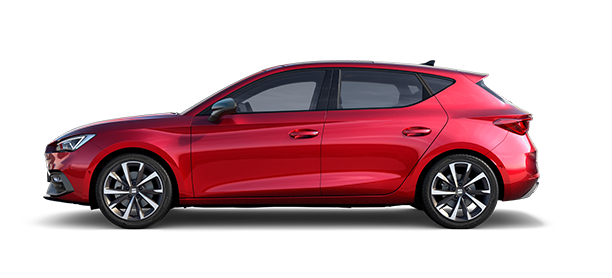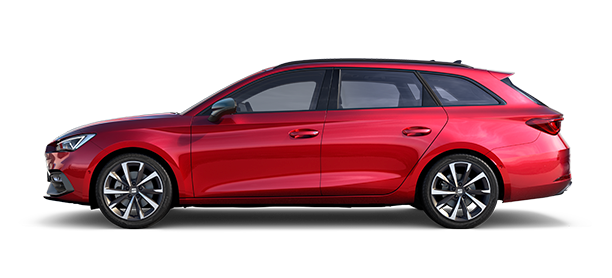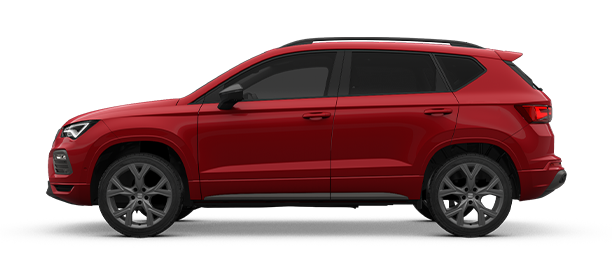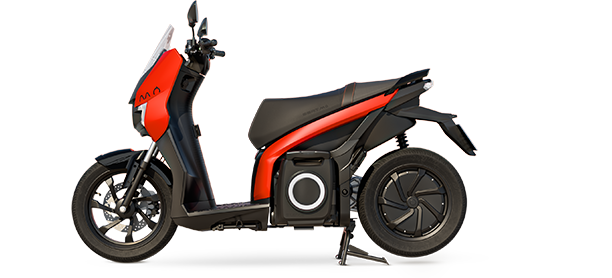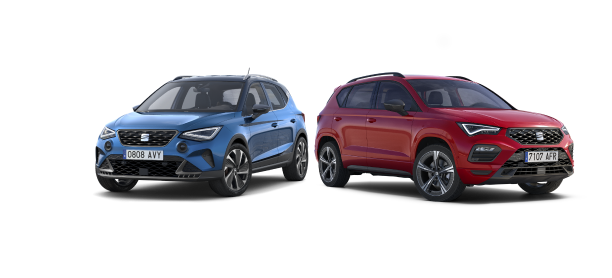The all-new SEAT Leon has been awarded a five-star safety rating from testing organisation Euro NCAP. The result is a demonstration of the work completed during the Leon’s development to create a car that delivers one of the safest vehicles on the market, especially as Euro NCAP’s testing methods have become even more challenging in 2020.
A key change for 2020 Euro NCAP’s testing procedures is the introduction of the moving barrier to moving car frontal crash test, replacing the moderate offset-deformable barrier test. The test helps the organisation to evaluate the protection of occupants inside the car, but also assesses how the cars’ front-end structurers contribute to.
That isn’t the only change in the testing procedure. Side impacts have been updated to include adjustments to the near-side barrier test speed and mass, increasing the severity of the test. And for the first time Euro NCAP evaluates far-side impact protection, focusing on driver protection and the potential interaction between driver and front seat passenger.
The all-new SEAT Leon is one of the first cars to face new, more demanding standards.
Euro NCAP has placed further emphasis on the latest generation of crash prevention and driver assistance systems and implemented new scenarios to rate AEB technology including back over situations and turning at a crossing. There is also a system to evaluate Driver Status Monitoring systems, designed to detect driver fatigue and distraction, as part of the Safety Assist assessment.
“We’re extremely proud that the new SEAT Leon achieved Euro NCAP’s top rating in its different variants – 5-Door and Sportstourer body types, combustion engine and PHEV powertrains-, by excelling through even the reimagined and incredibly challenging safety tests for 2020, a reflection of the emphasis we place on safety, and our openness to integrating the latest technologies, whether active or passive, to achieve this goal,” said Dr Werner Tietz, SEAT’s Vice-President for Research and Development.
Safety as part of its DNA.
A range of the latest safety systems based on a mixture of sensor data, allows the all-new SEAT Leon to see the road ahead like never before and, importantly, adapt to changing driving scenarios.
Systems including Autonomous Emergency Braking, Side* and Exit Assist*, Traffic Sign Recognition*, Traffic Jam Assist*, Light Assist* and Pre-Crash Assist*, work in unison to create a protective bubble around the vehicle and for occupants.
The Pre-Crash Assist system for example reacts in just 0.2 seconds should it detect an accident is about to happen – tightening the seatbelts, activating the hazard lights, rolling up the windows and closing the sunroof – helping protect the passenger compartment.
Add to these the integration of seven airbags, including a new standard front-central airbag, Front Assist with vehicles, pedestrians, cyclists detection, Emergency Steering Assist and Junction Assist, Lane Assist and Emergency e-Call and the all-new SEAT Leon delivers one of the safest vehicles available, even when faced with the new testing methods used by Euro NCAP.
The new standard front-central airbag prevents possible head contact between the driver and front passenger in the event of a side collision, for example.
In addition to detecting vehicles, pedestrians and cyclists, the Front Assist also includes Emergency Steering Assist and Junction Assist. During a Front Assist intervention, after the driver’s initial steering input to avoid an object, the Emergency Steering Assist makes targeted steering and braking interventions to help find an optimised evading trajectory.
The numbers prove the theory.
Both combustion engine and plug-in hybrid variants of the all-new SEAT Leon were tested by Euro NCAP, scoring highly in all areas: Adult Occupant 92%, Child Occupant 88%, Vulnerable Road User 71% and Safety Assist 80%.
Euro NCAP re-evaluates its testing practices every two year, and 2020’s are the strictest and most thorough to date, and SEAT is determined to continue to develop vehicles that excel during the tests, no matter how strict they become.
* optional equipment.







